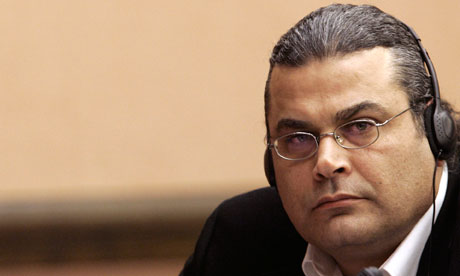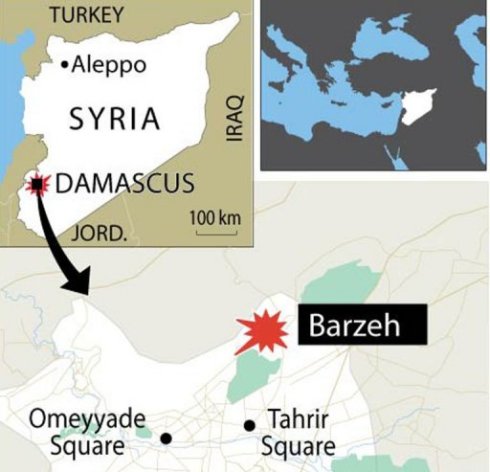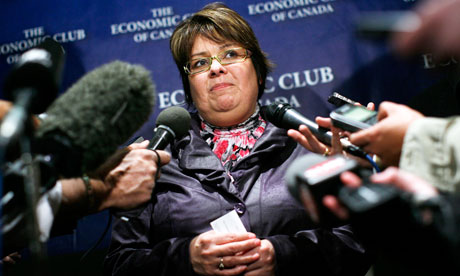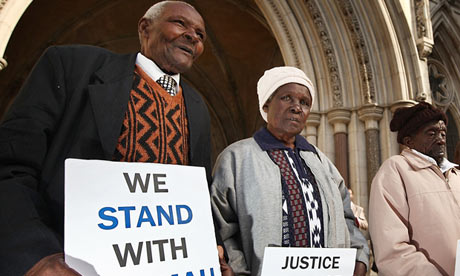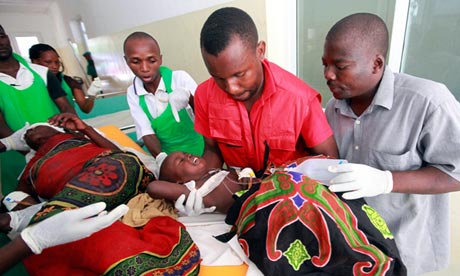Rwanda's Rampaging Rebel Force
By Philippe Bolopion
The New York Times, December 28, 2012
"Few countries dare challenge the Security Council the way Rwanda does; even fewer get away with it. Yet on Tuesday, despite backing an abusive rebel group that has attacked U.N. peacekeepers in the neighboring Democratic Republic of the Congo, Rwanda will take a two-year seat on the council. At the famous horseshoe table, Rwanda will get to make life-and-death decisions on the future of countries in crisis, including the very neighbor it is accused of destabilizing. How could this be? The facts came out in June, when a UN group of experts monitoring sanctions in eastern Congo published a report accusing Rwanda of supporting, as it had done before since the late 1990s, a Congolese rebellion this time named March 23. Even by Congolese standards, M23 has a sinister record: One of its leaders is Bosco Ntaganda, a fugitive from the International Criminal Court accused of war crimes, including murder, rape, sexual slavery and recruitment of child soldiers. As our own research at Human Rights Watch confirmed, Rwandan Army officials were providing M23 with weapons, ammunition and hundreds of young Rwandan recruits, and even sending their troops into Congo to assist them. Despite Rwanda's virulent denials, the diplomatic machinery kicked into gear, with the US government making discreet efforts to encourage its Rwandan ally to use its 'influence' to stop the violence. But throughout the summer Rwandan support continued unabated, enabling M23 to do what its leaders know best: commit widespread crimes, including killing civilians and summarily executing boys who tried to escape recruitment.
By Philippe Bolopion
The New York Times, December 28, 2012
"Few countries dare challenge the Security Council the way Rwanda does; even fewer get away with it. Yet on Tuesday, despite backing an abusive rebel group that has attacked U.N. peacekeepers in the neighboring Democratic Republic of the Congo, Rwanda will take a two-year seat on the council. At the famous horseshoe table, Rwanda will get to make life-and-death decisions on the future of countries in crisis, including the very neighbor it is accused of destabilizing. How could this be? The facts came out in June, when a UN group of experts monitoring sanctions in eastern Congo published a report accusing Rwanda of supporting, as it had done before since the late 1990s, a Congolese rebellion this time named March 23. Even by Congolese standards, M23 has a sinister record: One of its leaders is Bosco Ntaganda, a fugitive from the International Criminal Court accused of war crimes, including murder, rape, sexual slavery and recruitment of child soldiers. As our own research at Human Rights Watch confirmed, Rwandan Army officials were providing M23 with weapons, ammunition and hundreds of young Rwandan recruits, and even sending their troops into Congo to assist them. Despite Rwanda's virulent denials, the diplomatic machinery kicked into gear, with the US government making discreet efforts to encourage its Rwandan ally to use its 'influence' to stop the violence. But throughout the summer Rwandan support continued unabated, enabling M23 to do what its leaders know best: commit widespread crimes, including killing civilians and summarily executing boys who tried to escape recruitment.
